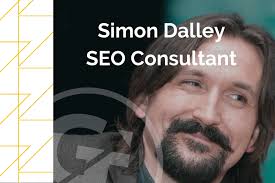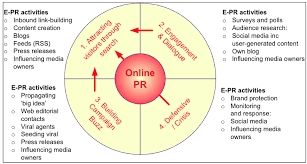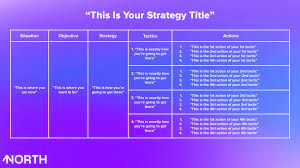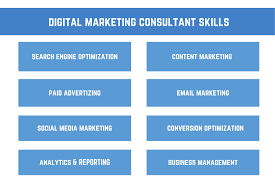The Importance of a Digital Marketing Consultant for Your Business
In today’s digital age, having a strong online presence is crucial for the success of any business. With countless platforms and strategies available, it can be overwhelming for business owners to navigate the complexities of digital marketing on their own. That’s where a digital marketing consultant comes in.
A digital marketing consultant is an experienced professional who specializes in developing and implementing effective online marketing strategies. They possess in-depth knowledge of various digital channels, such as search engine optimization (SEO), social media marketing, content creation, email marketing, and more. Their expertise allows them to tailor strategies that align with your business goals and reach your target audience effectively.
One of the key benefits of hiring a digital marketing consultant is their ability to provide valuable insights and industry trends. They stay up-to-date with the latest developments in the digital marketing landscape and have a deep understanding of consumer behavior online. This knowledge allows them to identify opportunities for your business and create strategies that keep you ahead of the competition.
Furthermore, a digital marketing consultant can save you time and resources. Managing your own digital marketing efforts can be time-consuming, especially if you lack experience or knowledge in this field. By outsourcing this task to a consultant, you can focus on other core aspects of your business while leaving the digital marketing responsibilities in capable hands.
Another advantage is their objectivity. As an external consultant, they bring fresh perspectives and unbiased opinions to your business’s online presence. They can assess your current strategies objectively and identify areas that need improvement or adjustment. This objectivity ensures that your digital marketing efforts are driven by data-driven decisions rather than personal biases.
Moreover, working with a digital marketing consultant provides scalability for your business. Whether you’re a small startup or an established company looking to expand its online presence, consultants can adapt their strategies based on your specific needs and budget constraints. They have the flexibility to scale up or down as required, ensuring that you get the most value for your investment.
A digital marketing consultant also brings a wealth of experience from working with various clients across different industries. This exposure allows them to understand the unique challenges and opportunities specific to your industry. They can leverage this experience to develop tailored strategies that resonate with your target audience and drive meaningful results.
In conclusion, in today’s digital landscape, a digital marketing consultant plays a vital role in helping businesses thrive online. Their expertise, industry knowledge, objectivity, and scalability make them an invaluable asset for any business looking to build a strong online presence. By partnering with a digital marketing consultant, you can unlock the full potential of your business and achieve sustainable growth in the ever-evolving digital world.
19 Frequently Asked Questions about Digital Marketing Consultants in the UK
- What skills do you need for digital marketing?
- How much do digital marketing consultants charge?
- What is the salary of digital marketing consultant in India?
- What is the 3 major part of digital marketing?
- How do I become a successful digital marketing consultant?
- What is the salary range for a digital marketing consultant?
- How do I become a digital consultant?
- What skills do you need to be a marketing consultant?
- How much does a digital marketing consultant earn?
- Is digital Consulting a good career?
- What is the role of a marketing consultant?
- What do marketing consultants do?
- What skills do you need to be a digital marketing consultant?
- What does a digital marketing consultant?
- How do I start a digital marketing consultant?
- How much do digital marketing consultants earn?
- What does a digital marketing consultant do?
- How do I become a digital marketing consultant?
- What are the 3 types of digital marketing?
What skills do you need for digital marketing?
Digital marketing is a dynamic and multifaceted field that requires a diverse set of skills. To succeed in this domain, here are some essential skills you should possess as a digital marketer:
- Digital Strategy: The ability to develop and implement effective digital marketing strategies is crucial. This includes setting clear goals, identifying target audiences, and selecting the appropriate digital channels to reach them.
- Data Analysis: Proficiency in data analysis is vital for measuring the success of marketing campaigns and making data-driven decisions. Understanding key metrics, analyzing trends, and drawing actionable insights from data will help optimize your strategies for better results.
- Search Engine Optimization (SEO): Knowledge of SEO principles is important for optimizing website content and improving organic search rankings. Understanding keyword research, on-page optimization, backlink building, and technical SEO aspects will drive more visibility and traffic to your website.
- Content Marketing: Creating compelling and engaging content is a core skill in digital marketing. Being able to produce high-quality written or visual content that resonates with your target audience across various platforms is essential for building brand awareness and driving conversions.
- Social Media Management: Proficiency in social media platforms and their management tools is crucial for effective social media marketing. Understanding audience targeting, content scheduling, community management, and analytics will help you leverage social media channels to engage with your audience effectively.
- Paid Advertising: Familiarity with pay-per-click (PPC) advertising platforms like Google Ads or social media advertising tools enables you to create targeted ad campaigns that reach the right audience at the right time. Knowledge of campaign structure, keyword targeting, ad copywriting, bidding strategies, and performance tracking are essential in this area.
- Email Marketing: Understanding email marketing best practices such as list segmentation, automation workflows, A/B testing, and analytics will help you create effective email campaigns that drive engagement and conversions.
- Digital Analytics: Proficiency in web analytics tools like Google Analytics is essential for tracking website traffic, user behavior, and campaign performance. This skill allows you to measure the effectiveness of your marketing efforts and make data-driven optimizations.
- Creative Skills: Having a creative mindset and skills in graphic design, video editing, or copywriting can enhance your digital marketing campaigns. Being able to create visually appealing assets or compelling ad copy will help you stand out and capture audience attention.
- Adaptability and Continuous Learning: Given the ever-evolving nature of digital marketing, being adaptable to new technologies, trends, and platforms is crucial. Keeping up with industry updates through continuous learning and staying curious about emerging strategies will help you stay ahead in the digital marketing landscape.
Remember that these skills can be developed over time through education, practical experience, and continuous learning. As the field of digital marketing continues to evolve rapidly, it’s important to stay proactive in acquiring new skills to remain competitive in the industry.
How much do digital marketing consultants charge?
The fees charged by digital marketing consultants can vary depending on several factors, including their level of experience, expertise, geographic location, and the scope of the project or services required. Some consultants may charge an hourly rate, while others may offer fixed project-based pricing or monthly retainer fees.
Hourly rates for digital marketing consultants can range anywhere from £50 to £200 per hour. However, it’s important to note that rates may be higher for consultants with extensive experience or specialized skills in certain areas such as SEO, paid advertising, or social media management.
For fixed project-based pricing, the cost will depend on the specific project requirements and deliverables. Consultants will typically provide a detailed proposal outlining the scope of work and associated costs.
Monthly retainer fees are another common pricing structure used by digital marketing consultants. Retainers are often based on a set number of hours per month dedicated to managing and implementing various aspects of your digital marketing strategy. Retainer fees can range from a few hundred pounds to several thousand pounds per month.
It’s worth mentioning that while cost is an important factor when considering hiring a digital marketing consultant, it’s equally important to evaluate their expertise, track record, and the value they can bring to your business. Choosing a consultant solely based on price may not always result in the best outcome. It’s advisable to have initial consultations with potential consultants to discuss your goals and expectations and determine if they are the right fit for your business before discussing pricing details.
Ultimately, the investment in a digital marketing consultant should be viewed as an opportunity to enhance your online presence and drive business growth. The cost will vary depending on various factors but finding a consultant who aligns with your objectives and offers valuable expertise is key to achieving successful results.
What is the salary of digital marketing consultant in India?
The salary of a digital marketing consultant in India can vary depending on several factors such as experience, location, company size, and industry. On average, the salary range for a digital marketing consultant in India is between INR 4,00,000 to INR 10,00,000 per annum. However, it’s important to note that these figures are approximate and can vary significantly based on individual circumstances and market conditions. Additionally, senior-level consultants with extensive experience and expertise may earn higher salaries.
What is the 3 major part of digital marketing?
The three major parts of digital marketing are:
- Search Engine Optimization (SEO): SEO involves optimizing your website and content to improve its visibility in search engine results. It focuses on increasing organic (non-paid) traffic by targeting specific keywords, improving website structure and performance, and enhancing user experience. SEO helps businesses rank higher in search engine results pages, making it easier for potential customers to find them.
- Pay-Per-Click Advertising (PPC): PPC advertising involves placing targeted ads on search engines or other platforms and paying only when someone clicks on the ad. This method allows businesses to reach their target audience quickly and drive traffic to their website or landing page. Platforms like Google Ads and social media advertising networks offer robust PPC advertising options that can be customized based on budget, target audience, and campaign objectives.
- Social Media Marketing: Social media marketing focuses on leveraging social media platforms like Facebook, Instagram, Twitter, LinkedIn, and others to connect with the target audience, build brand awareness, engage with customers, and drive website traffic or conversions. It involves creating compelling content, running targeted ad campaigns, engaging with followers through comments and messages, and analyzing metrics to optimize performance.
These three major components of digital marketing work together synergistically to help businesses achieve their goals. SEO ensures that websites are visible in search results organically; PPC advertising provides immediate visibility through paid ads; while social media marketing helps build brand presence and engage with the target audience on popular social platforms.
How do I become a successful digital marketing consultant?
Becoming a successful digital marketing consultant requires a combination of knowledge, skills, experience, and dedication. Here are some steps to help you on your journey:
- Obtain the necessary education: Start by gaining a solid foundation in digital marketing concepts and strategies. Consider pursuing relevant courses or certifications from reputable institutions or online platforms. This will provide you with a comprehensive understanding of various digital marketing channels and tactics.
- Develop practical skills: Digital marketing is a hands-on field, so it’s crucial to gain practical experience. Look for opportunities to work on real-world projects, whether it’s through internships, volunteering, or freelancing. This will help you apply theoretical knowledge and develop essential skills such as SEO optimization, content creation, social media management, data analysis, and more.
- Stay updated with industry trends: The digital marketing landscape is constantly evolving. Stay abreast of the latest trends, tools, and technologies by reading industry blogs, attending webinars or conferences, and following influential figures in the field. Continuous learning is essential to stay competitive in this dynamic industry.
- Build a strong online presence: Showcase your expertise by creating an online portfolio or website that highlights your skills and past projects. Establish an active presence on professional networking platforms like LinkedIn to connect with potential clients and colleagues in the industry.
- Network and collaborate: Networking is crucial for any consultant’s success. Attend industry events or join relevant professional groups where you can meet like-minded individuals and potential clients. Collaborate with other professionals in complementary fields (such as web developers or graphic designers) to offer comprehensive services to clients.
- Gain client experience: Start working with clients to build your reputation as a consultant. Offer your services at competitive rates initially to attract clients while building your portfolio and testimonials. As you gain more experience and positive feedback from clients, gradually increase your rates.
- Provide value-added services: To differentiate yourself from competitors, offer additional value to clients. Stay updated with the latest marketing trends and provide insights and recommendations beyond the basic services you offer. This will help build trust and long-term relationships with clients.
- Develop strong communication skills: As a consultant, effective communication is key. Be attentive to your clients’ needs, actively listen, and clearly articulate your ideas and strategies. Adapt your communication style to suit different clients and stakeholders.
- Continuously evaluate and improve: Regularly assess the effectiveness of your strategies and tactics. Analyze data, track key performance indicators (KPIs), and make data-driven decisions to optimize campaigns. Learning from both successes and failures will help you refine your approach over time.
- Provide exceptional customer service: Delivering excellent customer service is vital for client satisfaction and referrals. Be responsive, reliable, and proactive in addressing any concerns or questions that arise during projects.
Remember, becoming a successful digital marketing consultant takes time and dedication. Stay committed to continuous learning, adaptability, and delivering quality results to your clients, and you’ll be on the path to success in this exciting field.
What is the salary range for a digital marketing consultant?
The salary range for a digital marketing consultant can vary depending on several factors, including location, level of experience, industry, and the size of the company or agency they work for.
In the United Kingdom, the average salary for a digital marketing consultant is around £30,000 to £45,000 per year. However, it’s important to note that this is just an average and individual salaries can fall both above and below this range.
For entry-level positions or those with less experience, salaries may start at around £20,000 to £25,000 per year. As consultants gain more experience and expertise in their field, their earning potential increases. Mid-level digital marketing consultants can expect salaries ranging from £35,000 to £55,000 per year.
Senior-level digital marketing consultants with extensive experience and a proven track record of success can earn higher salaries. In some cases, senior consultants may earn upwards of £70,000 per year or more.
It’s worth mentioning that these figures are approximate and can vary based on factors such as geographic location (e.g., London tends to have higher salaries compared to other regions), demand for digital marketing skills in the market, and additional benefits or bonuses offered by employers.
Ultimately, the salary range for a digital marketing consultant is influenced by various factors and can differ from one individual to another. It’s advisable to research specific job listings and industry trends in your area for more accurate salary information.
How do I become a digital consultant?
Becoming a digital consultant requires a combination of education, experience, and skills. Here are some steps you can take to pursue a career as a digital consultant:
- Acquire relevant education: While there is no specific degree required to become a digital consultant, having a background in marketing, business, communications, or a related field can be beneficial. Consider pursuing a bachelor’s or master’s degree in these areas to gain foundational knowledge.
- Gain practical experience: Practical experience is crucial in the field of digital consulting. Look for internships or entry-level positions in marketing agencies, digital marketing departments, or related roles where you can learn about various aspects of digital marketing such as SEO, social media management, content creation, and analytics.
- Develop technical skills: Digital consultants need to be proficient in various digital tools and platforms. Familiarize yourself with popular software and tools used in the industry such as Google Analytics, SEO tools (e.g., SEMrush or Moz), social media management platforms (e.g., Hootsuite or Buffer), email marketing platforms (e.g., Mailchimp or Constant Contact), and content management systems (e.g., WordPress).
- Stay updated with industry trends: The digital landscape is constantly evolving. Stay updated with the latest trends and developments by following industry blogs, attending webinars or workshops, and participating in relevant online communities. This will help you stay ahead of the curve and provide valuable insights to your clients.
- Build a portfolio: As you gain experience and work on projects, build a portfolio that showcases your skills and achievements. Include case studies highlighting successful campaigns you have worked on along with measurable results achieved for clients.
- Network: Networking is essential for any consultant. Attend industry events, join professional associations or communities related to digital marketing and consulting to connect with like-minded professionals. Networking can lead to potential job opportunities or collaborations.
- Specialize in an area: Consider specializing in a specific area of digital marketing consultancy such as SEO, social media marketing, content strategy, or PPC advertising. Developing expertise in a niche can help you stand out and attract clients who require specialized knowledge.
- Establish your online presence: Create a professional website and optimize your online presence to showcase your skills and expertise. Utilize social media platforms like LinkedIn to build your professional network and engage with potential clients.
- Start freelancing or join an agency: Once you feel confident in your abilities, consider freelancing or joining a digital marketing agency as a consultant. Freelancing allows you to work independently and build your client base, while working for an agency provides the opportunity to learn from experienced professionals and gain exposure to a variety of projects.
Remember, becoming a successful digital consultant takes time and continuous learning. Stay curious, adapt to industry changes, and always strive for excellence in delivering results for your clients.
What skills do you need to be a marketing consultant?
Being a successful marketing consultant requires a combination of skills and attributes that enable you to effectively analyze, strategize, and implement marketing initiatives. Here are some essential skills needed to excel in this role:
- Marketing Expertise: A solid foundation in marketing principles, strategies, and tactics is crucial. This includes understanding market research, consumer behavior, branding, advertising, digital marketing channels, content creation, social media management, and more.
- Analytical Skills: The ability to analyze data and extract meaningful insights is essential for developing effective marketing strategies. Strong analytical skills enable you to identify trends, measure campaign performance, and make data-driven decisions.
- Communication Skills: As a marketing consultant, you must possess excellent communication skills both orally and in writing. You should be able to convey complex concepts in a clear and concise manner to clients or team members. Additionally, active listening skills are important for understanding client needs and objectives.
- Creativity: Marketing consultants need to think creatively to develop innovative solutions that stand out in a crowded marketplace. This involves generating unique ideas for campaigns or content that engage the target audience and differentiate the client’s brand.
- Strategic Thinking: The ability to think strategically is crucial for developing comprehensive marketing plans aligned with business goals. This includes setting objectives, identifying target audiences, positioning brands effectively, and creating actionable steps to achieve desired outcomes.
- Project Management: Effective project management skills allow you to plan and execute marketing initiatives within defined timelines and budgets. This involves coordinating with various stakeholders, managing resources efficiently, tracking progress, and ensuring deliverables are met.
- Adaptability: The digital landscape is constantly evolving; therefore, being adaptable is essential for staying ahead of industry trends and changes in consumer behavior. A willingness to learn new tools and techniques is crucial for delivering up-to-date strategies.
- Relationship Building: Building strong relationships with clients is vital as a marketing consultant. This requires strong interpersonal skills, the ability to understand client needs, and the capacity to build trust and rapport.
- Business Acumen: Understanding business fundamentals is important for a marketing consultant. This includes knowledge of financial metrics, competitive analysis, market positioning, and the ability to align marketing strategies with overall business objectives.
- Continuous Learning: The field of marketing is dynamic, so a willingness to continuously learn and stay updated with industry advancements is essential. This can involve attending conferences, workshops, webinars, or pursuing certifications related to marketing.
While these skills are important for a marketing consultant, it’s worth noting that every consultant may have their own unique strengths and areas of expertise. The ability to adapt and tailor these skills based on individual client requirements is key to delivering successful marketing consultancy services.
How much does a digital marketing consultant earn?
The earnings of a digital marketing consultant can vary depending on several factors, including their level of experience, location, the size and type of clients they work with, and the scope of their services. It’s important to note that there is no fixed or standard salary for digital marketing consultants as they often work on a freelance or contract basis.
That being said, digital marketing consultants typically charge either an hourly rate or project-based fees. Hourly rates can range from £50 to £150 per hour, depending on the consultant’s expertise and reputation. Project-based fees can vary greatly depending on the complexity and duration of the project, but they can range from a few hundred pounds for smaller projects to several thousand pounds for larger-scale campaigns.
It’s worth mentioning that some digital marketing consultants may also charge a percentage of the advertising spend if they are responsible for managing online ad campaigns. This fee structure allows them to earn a commission based on the results achieved through their advertising efforts.
Ultimately, the earnings of a digital marketing consultant are influenced by various factors and can vary significantly. It’s advisable for businesses seeking to hire a consultant to discuss their budget and expectations upfront in order to reach an agreement that aligns with both parties’ needs.
Is digital Consulting a good career?
Digital consulting can be a rewarding and fulfilling career choice for those with a passion for technology, marketing, and problem-solving. Here are some factors to consider when evaluating whether digital consulting is a good career for you:
- Demand and Growth: The digital landscape is constantly evolving, and businesses of all sizes are increasingly investing in digital transformation. This creates a high demand for skilled digital consultants who can guide companies through this process. The industry is expected to continue growing, offering ample opportunities for career advancement.
- Variety of Projects: Digital consultants work with diverse clients across various industries, allowing them to gain exposure to different business models, challenges, and technologies. This variety keeps the work dynamic and interesting, providing continuous learning opportunities.
- Continuous Learning: Digital consulting requires staying up-to-date with the latest trends, tools, and strategies in the ever-changing digital space. This constant learning keeps consultants intellectually stimulated and helps them develop expertise in emerging areas such as artificial intelligence, data analytics, or social media marketing.
- Problem-Solving and Creativity: As a digital consultant, you will be tasked with solving complex business problems using innovative solutions. This requires critical thinking skills and the ability to think outside the box. If you enjoy finding creative solutions to challenges and thrive in a problem-solving environment, digital consulting can be a great fit.
- Impactful Results: Working as a digital consultant allows you to make a tangible impact on businesses’ success by helping them achieve their goals through effective digital strategies. Seeing your recommendations come to life and witnessing the positive outcomes can be highly rewarding.
- Flexibility: Many digital consultants have the flexibility to work remotely or on a freelance basis if desired. This flexibility can offer an improved work-life balance and allow you to choose projects that align with your interests or expertise.
However, it’s important to note that like any career choice, there are also challenges associated with being a digital consultant. These may include managing client expectations, working under tight deadlines, and staying ahead of the rapidly evolving digital landscape. It requires adaptability, strong communication skills, and the ability to handle multiple projects simultaneously.
Ultimately, whether digital consulting is a good career for you depends on your interests, skills, and aspirations. It can be an exciting and fulfilling path for those who enjoy technology, marketing, problem-solving, and continuous learning.
What is the role of a marketing consultant?
The role of a marketing consultant is to provide expert advice, guidance, and support to businesses in developing and implementing effective marketing strategies. Marketing consultants are professionals with extensive knowledge and experience in various aspects of marketing, including market research, branding, advertising, digital marketing, public relations, and more.
Here are some key responsibilities and roles that a marketing consultant typically fulfills:
- Strategy Development: Marketing consultants work closely with businesses to understand their goals, target audience, and competitive landscape. Based on this information, they develop comprehensive marketing strategies that align with the business’s objectives.
- Market Research: Consultants conduct thorough market research to gain insights into consumer behavior, industry trends, and competitors. This research helps businesses understand their target audience better and identify opportunities for growth.
- Branding and Positioning: Marketing consultants assist in creating or refining a brand identity that resonates with the target market. They help develop brand positioning strategies that differentiate the business from its competitors.
- Advertising and Promotion: Consultants provide guidance on advertising campaigns, media planning, and promotional activities that effectively reach the target audience. They may also assist in creating compelling messaging and content for various advertising channels.
- Digital Marketing: With the increasing importance of digital platforms, marketing consultants often specialize in digital marketing strategies such as search engine optimization (SEO), social media marketing (SMM), content creation, email marketing, and more. They help businesses leverage these channels to increase visibility and engagement.
- Performance Analysis: Marketing consultants analyze the performance of marketing campaigns using key performance indicators (KPIs) to measure success. They provide insights into what is working well and areas that need improvement.
- Training and Education: Consultants may also offer training sessions or workshops for business owners or employees to enhance their understanding of marketing principles or specific tactics.
- Project Management: In some cases, consultants take on project management roles to oversee the implementation of marketing strategies from start to finish. They ensure that projects are executed efficiently and within the defined timelines.
Overall, the role of a marketing consultant is to act as a trusted advisor, providing businesses with expert knowledge and guidance to make informed marketing decisions. Their objective is to help businesses achieve their marketing goals, increase brand awareness, attract and retain customers, and ultimately drive business growth.
What do marketing consultants do?
Marketing consultants provide professional guidance and expertise to businesses in developing and implementing effective marketing strategies. Their role is to help businesses identify their target audience, understand market trends, and create plans to reach and engage customers.
Here are some key tasks that marketing consultants typically perform:
- Market Research: Marketing consultants conduct thorough research to gain insights into the industry, competitors, and target market. They analyze market trends, consumer behavior, and demographics to identify opportunities and challenges.
- Strategy Development: Based on the research findings, marketing consultants develop comprehensive marketing strategies tailored to the specific goals and objectives of the business. They outline the key tactics, channels, messaging, and positioning required to achieve those goals.
- Branding and Positioning: Marketing consultants assist businesses in building a strong brand identity by defining brand values, creating compelling messaging, and establishing a unique positioning in the market. They ensure consistent branding across all marketing channels.
- Digital Marketing: With expertise in various digital channels, marketing consultants guide businesses on effective online marketing strategies. This includes search engine optimization (SEO), social media marketing, content creation, email campaigns, paid advertising, website optimization, and more.
- Campaign Planning and Execution: Marketing consultants develop detailed plans for specific marketing campaigns or initiatives. They outline campaign objectives, target audience segments, messaging strategies, budget allocation, timeline management, and performance measurement metrics.
- Analytics and Reporting: Consultants track campaign performance using various analytics tools to measure key performance indicators (KPIs) such as website traffic, conversion rates, engagement metrics etc. They provide regular reports with insights on campaign effectiveness and recommendations for improvement.
- Market Expansion: Marketing consultants help businesses explore new markets or expand into new regions by conducting market analysis specific to those areas. They assess local competition dynamics and consumer preferences to develop tailored strategies for successful entry or expansion.
- Training and Education: Some marketing consultants provide training sessions or workshops for business owners and their teams to enhance their marketing knowledge and skills. They share best practices, industry trends, and provide guidance on implementing effective marketing techniques.
Overall, the main objective of marketing consultants is to assist businesses in achieving their marketing goals by providing strategic guidance, market insights, and expertise in various marketing disciplines. They act as trusted advisors who help businesses navigate the complexities of the ever-changing marketing landscape and drive meaningful results.
What skills do you need to be a digital marketing consultant?
To be a successful digital marketing consultant, there are several key skills and qualities that you should possess. These include:
- In-depth knowledge of digital marketing channels: A strong understanding of various digital marketing channels such as SEO, social media, content marketing, email marketing, PPC advertising, and analytics is essential. You should be well-versed in the latest trends, strategies, and best practices within each channel.
- Analytical mindset: The ability to analyze data and derive actionable insights is crucial for a digital marketing consultant. You should be comfortable working with analytics tools to measure campaign performance, track key metrics, and identify areas for improvement.
- Strategic thinking: As a consultant, you need to think strategically and develop effective marketing strategies that align with your clients’ goals. This involves understanding their target audience, conducting market research, identifying opportunities, and creating a roadmap for success.
- Communication skills: Strong communication skills are vital as you’ll be working closely with clients to understand their requirements and objectives. You should be able to clearly articulate your ideas and recommendations in a way that clients can understand and appreciate.
- Creativity: Digital marketing often requires innovative thinking to stand out in a crowded online space. Being able to come up with creative ideas for content creation, campaigns, or social media engagement can greatly enhance your effectiveness as a consultant.
- Adaptability: The digital landscape is constantly evolving, so it’s important to stay updated with the latest trends and changes in algorithms or platforms. Being adaptable allows you to adjust strategies accordingly and ensure optimal results for your clients.
- Project management skills: As a consultant, you may handle multiple projects simultaneously. Strong project management skills are necessary to prioritize tasks effectively, meet deadlines, manage resources efficiently, and deliver high-quality work consistently.
- Client relationship management: Building strong relationships with your clients is crucial for success as a digital marketing consultant. You should be able to understand their needs, provide excellent customer service, and maintain open lines of communication throughout the engagement.
- Continuous learning: The digital marketing landscape is dynamic, so a willingness to continuously learn and update your skills is essential. Staying informed about industry trends, attending webinars or conferences, and seeking professional certifications can help you stay ahead of the curve.
These skills, combined with experience working on diverse projects and a passion for digital marketing, can set you up for a successful career as a digital marketing consultant.
What does a digital marketing consultant?
A digital marketing consultant performs a range of tasks and responsibilities to help businesses develop and execute effective online marketing strategies. Here are some key roles and responsibilities of a digital marketing consultant:
- Strategy Development: A digital marketing consultant works closely with businesses to understand their goals, target audience, and industry landscape. They develop comprehensive digital marketing strategies that align with the business objectives and maximize online visibility.
- Market Research: Consultants conduct thorough market research to identify trends, consumer behavior, and competitor analysis. This research helps in identifying opportunities and creating targeted campaigns that resonate with the target audience.
- Website Optimization: A consultant assesses the business’s website to ensure it is optimized for search engines (SEO). They analyze website structure, content, keywords, and user experience to improve visibility in search engine results pages (SERPs) and drive organic traffic.
- Content Creation: Consultants often assist in developing engaging content that aligns with the brand’s voice and resonates with the target audience. This can include blog posts, social media content, email newsletters, videos, infographics, and more.
- Social Media Management: They help businesses establish a strong presence on social media platforms by creating engaging content calendars, managing social media accounts, running paid advertising campaigns, monitoring performance metrics, and engaging with followers.
- Paid Advertising Campaigns: Digital marketing consultants are skilled in managing paid advertising campaigns across various platforms such as Google Ads or social media ads. They create targeted campaigns that drive relevant traffic to the business’s website or landing pages.
- Analytics and Reporting: Consultants monitor key performance indicators (KPIs) using analytics tools to measure the effectiveness of digital marketing efforts. They provide regular reports on campaign performance, identify areas for improvement, and make data-driven recommendations.
- Conversion Rate Optimization (CRO): A digital marketing consultant focuses on optimizing conversion rates by analyzing user behavior on websites or landing pages. They identify barriers to conversion and implement strategies to improve user experience and increase conversions.
- Email Marketing: They develop email marketing strategies, create compelling email campaigns, manage subscriber lists, and track email performance metrics to nurture leads and engage with customers.
- Stay Updated with Industry Trends: Digital marketing is a rapidly evolving field, and consultants stay up-to-date with the latest trends, tools, and best practices. They continuously educate themselves to provide businesses with innovative strategies that yield results.
Overall, a digital marketing consultant acts as a strategic partner for businesses, helping them navigate the digital landscape and achieve their online marketing goals. Their expertise in various aspects of digital marketing ensures that businesses can effectively reach their target audience, drive brand awareness, increase website traffic, generate leads, and ultimately achieve business growth.
How do I start a digital marketing consultant?
Starting a digital marketing consultancy can be an exciting and rewarding venture. Here are some steps to help you get started:
- Gain expertise and knowledge: Before starting a digital marketing consultancy, it’s essential to have a strong foundation in digital marketing. Acquire relevant skills and knowledge through courses, certifications, and practical experience. Stay updated with the latest trends, tools, and strategies in the field.
- Define your niche: Determine your area of specialization within digital marketing. It could be social media marketing, SEO, content marketing, email marketing, or a combination of different services. Focusing on a specific niche helps you stand out from competitors and position yourself as an expert in that particular area.
- Develop a business plan: Create a comprehensive business plan that outlines your goals, target market, services offered, pricing structure, marketing strategies, and financial projections. A well-thought-out plan will guide your actions and help you stay focused on your objectives.
- Set up your business: Decide on the legal structure of your business (sole proprietorship, partnership, or limited liability company) and register it accordingly with the appropriate authorities. Obtain any necessary licenses or permits required to operate as a consultant in your jurisdiction.
- Build your brand: Develop a strong brand identity that reflects your expertise and values as a digital marketing consultant. Design an appealing logo, establish an online presence through a professional website and social media profiles, and create compelling content that showcases your knowledge and capabilities.
- Network and build relationships: Attend industry events, join professional associations or online communities related to digital marketing to network with potential clients and industry peers. Build relationships by offering value through sharing insights or participating in discussions.
- Define your services and pricing: Clearly define the range of services you offer as a digital marketing consultant based on your expertise. Determine how you will price your services—whether it’s hourly rates or project-based pricing—and ensure it aligns with the value you provide.
- Market your consultancy: Develop a marketing strategy to promote your services. Utilize various channels such as social media, content marketing, email campaigns, and networking events to reach your target audience. Showcase your expertise through case studies, testimonials, and thought leadership content.
- Acquire clients: Proactively reach out to potential clients who can benefit from your services. Leverage your network, attend industry conferences or trade shows, and engage in targeted online advertising to generate leads. Provide value through consultations or free resources to establish trust and credibility.
- Deliver exceptional service: Once you acquire clients, focus on delivering high-quality service that exceeds their expectations. Satisfied clients will not only become repeat customers but also refer you to others, helping you grow your consultancy through word-of-mouth recommendations.
Remember that building a successful digital marketing consultancy takes time and dedication. Continuously update your skills, adapt to industry changes, and stay committed to delivering outstanding results for your clients.
How much do digital marketing consultants earn?
The earning potential of digital marketing consultants can vary depending on several factors, including their level of experience, expertise, location, and the size and type of clients they work with. Generally, digital marketing consultants can earn anywhere from £25,000 to £100,000 or more per year.
For entry-level or junior digital marketing consultants, the average salary typically ranges between £25,000 and £40,000 per year. As they gain more experience and expertise in the field, their earning potential increases. Mid-level digital marketing consultants with a few years of experience can expect to earn between £40,000 and £70,000 per year.
Senior digital marketing consultants who have extensive experience and a proven track record of successful campaigns can earn higher salaries. Their earnings can range from £70,000 to over £100,000 per year. Additionally, some experienced consultants may choose to work independently or start their own consulting agencies, which can further increase their earning potential.
It’s important to note that these figures are approximate and can vary significantly based on individual circumstances. Factors such as the demand for digital marketing services in a particular region or industry can also impact earning potential.
Furthermore, it’s worth considering that some digital marketing consultants may charge an hourly rate or project-based fees instead of a fixed annual salary. This allows them to have more flexibility in determining their income based on the scope and complexity of each project.
Ultimately, the earning potential of a digital marketing consultant is influenced by various factors mentioned earlier. It’s advisable for individuals interested in pursuing this career path to research industry trends and consult local job market data for a more accurate understanding of earning potential in their specific area.
What does a digital marketing consultant do?
A digital marketing consultant is a professional who provides expert advice, guidance, and assistance to businesses in developing and implementing effective digital marketing strategies. Their role involves leveraging various online channels and tactics to help businesses reach their target audience, increase brand visibility, drive website traffic, generate leads, and ultimately achieve their marketing goals.
Here are some key responsibilities of a digital marketing consultant:
- Strategy Development: A digital marketing consultant works closely with businesses to understand their objectives, target audience, and competitive landscape. Based on this analysis, they develop a comprehensive digital marketing strategy that outlines the channels, tactics, and timelines required to achieve the desired results.
- Online Advertising: Consultants are well-versed in various online advertising platforms such as Google Ads, social media advertising (Facebook Ads, Instagram Ads), display advertising networks, and more. They create targeted ad campaigns that maximize reach and engagement while optimizing budget allocation for optimal ROI.
- Search Engine Optimization (SEO): SEO plays a crucial role in improving organic search rankings and driving relevant traffic to websites. Digital marketing consultants conduct thorough keyword research, optimize website content and structure, build quality backlinks, and monitor performance using analytics tools to improve search engine visibility.
- Content Marketing: Content is central to any successful digital marketing strategy. Consultants help businesses develop compelling content that resonates with the target audience across different channels such as blogs, videos, infographics, eBooks, whitepapers, and more. They ensure content aligns with brand messaging while incorporating relevant keywords for improved SEO.
- Social Media Management: Social media platforms provide an excellent opportunity for businesses to engage with their audience directly. Digital marketing consultants create social media strategies tailored to each platform (Facebook, Instagram, Twitter) that drive engagement through compelling content creation and community management.
- Email Marketing: Consultants assist in developing effective email marketing campaigns that nurture leads and build customer loyalty. They design engaging email templates or newsletters that align with brand identity, segment email lists for targeted messaging, and analyze campaign performance to optimize future efforts.
- Analytics and Reporting: Consultants use various analytics tools to monitor the performance of digital marketing campaigns. They track key metrics such as website traffic, conversion rates, click-through rates, and engagement levels. This data helps them identify trends, measure campaign effectiveness, and make data-driven recommendations for improvement.
- Continuous Optimization: Digital marketing consultants continuously monitor and optimize campaigns based on real-time data and industry trends. They conduct A/B testing, refine targeting parameters, adjust ad spend allocation, modify content strategies, and explore new opportunities to ensure maximum ROI and ongoing success.
Overall, a digital marketing consultant combines their expertise in various digital marketing disciplines to create a comprehensive strategy tailored to a business’s unique needs. Their goal is to help businesses navigate the ever-changing digital landscape effectively and achieve measurable results in terms of brand awareness, lead generation, customer acquisition, and revenue growth.
How do I become a digital marketing consultant?
Becoming a digital marketing consultant requires a combination of knowledge, skills, and experience in the field. Here are some steps you can take to embark on a career as a digital marketing consultant:
- Gain a solid foundation: Start by acquiring a strong understanding of digital marketing principles and techniques. This can be achieved through online courses, certifications, or even pursuing a degree in marketing or a related field. Familiarize yourself with key concepts such as SEO, social media marketing, content creation, email marketing, analytics, and more.
- Develop practical skills: Digital marketing is hands-on work that requires practical skills. Take the time to hone your skills by working on real-world projects or internships. This will help you gain experience in implementing different strategies and using various tools commonly used in the industry.
- Stay updated with industry trends: The digital marketing landscape is constantly evolving. Stay ahead by keeping up with the latest industry trends, algorithm updates from search engines and social media platforms, new tools and technologies, and emerging best practices. Follow reputable blogs, attend webinars or conferences, and join relevant professional communities to stay informed.
- Build your own online presence: Create your own online presence to showcase your expertise and attract potential clients. Develop a personal website or blog where you can share valuable content related to digital marketing topics. Establish profiles on professional networking platforms like LinkedIn to connect with others in the industry.
- Gain practical experience: Offer your services pro bono or at discounted rates to build your portfolio and gain practical experience working with real clients. This will not only help you refine your skills but also provide tangible results that you can showcase when pitching your services to potential clients.
- Network and establish connections: Networking is crucial in any consulting career. Attend industry events, join relevant professional groups or associations both online and offline, participate in forums or discussion boards where professionals gather to share insights and collaborate.
- Specialize and differentiate yourself: Consider specializing in a particular niche or industry to differentiate yourself from the competition. By focusing on a specific area, you can become an expert in that field and offer unique insights and solutions to clients.
- Market yourself: As a digital marketing consultant, you need to market your own services effectively. Develop a compelling personal brand, create a professional portfolio showcasing your past work and successes, and establish a strong online presence through social media platforms.
- Continuously learn and adapt: Digital marketing is an ever-changing field, so it’s important to stay curious and open to learning. Keep up with industry news, take advanced courses or certifications, experiment with new strategies, and constantly evaluate and adapt your approach based on data-driven insights.
- Seek client testimonials and referrals: As you start working with clients, gather testimonials that highlight the positive impact of your services. Encourage satisfied clients to provide referrals or recommendations that can help you attract new business.
Remember, becoming a successful digital marketing consultant takes time and effort. It’s important to continuously refine your skills, stay updated with industry trends, build relationships within the industry, and deliver exceptional results for your clients.
What are the 3 types of digital marketing?
The three main types of digital marketing are:
- Search Engine Optimization (SEO): SEO focuses on improving a website’s visibility in search engine results pages (SERPs) organically. It involves optimizing website content, structure, and technical aspects to rank higher in search engine rankings. SEO aims to increase organic traffic by targeting relevant keywords and enhancing the user experience on the website.
- Pay-Per-Click Advertising (PPC): PPC advertising involves placing paid advertisements on search engines or other platforms. Advertisers bid on specific keywords, and their ads appear when users search for those keywords. The advertiser pays a fee each time someone clicks on their ad, hence the term “pay-per-click.” Popular PPC platforms include Google Ads and Bing Ads.
- Social Media Marketing: Social media marketing involves using social media platforms such as Facebook, Instagram, Twitter, LinkedIn, and others to promote products or services. It includes creating engaging content, running targeted ad campaigns, building brand awareness, interacting with followers, and driving traffic to websites or landing pages.
These three types of digital marketing work together synergistically to create a comprehensive online presence for businesses. While SEO focuses on organic visibility in search engines, PPC advertising allows businesses to gain immediate visibility by paying for ads. Social media marketing complements both SEO and PPC by leveraging social platforms to engage with audiences and drive brand awareness.











